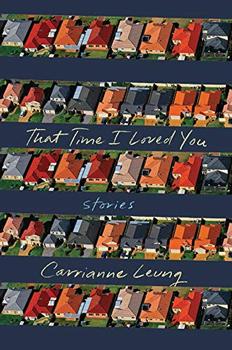Summary | Excerpt | Reviews | Beyond the Book | Readalikes | Genres & Themes | Author Bio

 Book Reviewed by:
Book Reviewed by:
Rebecca Foster
Buy This Book
Grass
1979: This was the year the parents in my neighbourhood began killing themselves. I was eleven years old and in Grade 6. Elsewhere in the world, big things were happening. McDonald's introduced the Happy Meal, Ayatollah Khomeini returned to Iran and Michael Jackson released his album Off the Wall. But none of that was as significant to me as the suicides.
It started with Mr. Finley, Carolyn Finley's dad. It was a Saturday afternoon in freezing February. My best friend, Josie, and I were sitting on her bed, playing Barry Manilow's "Copacabana" over and over again on her cassette player and writing down the lyrics. I was the recorder while Josie pressed play, rewind, and play again a hundred times, repeating the lines over to me until the ribbon finally snapped and we had to repair it with Scotch tape.
"Did you get that, June? Did you get that?" she kept asking me as I nodded and wrote furiously on lined paper. We kept all the transcribed lyrics in a special pink binder marked "SONGS" in my balloon lettering.
I didn't like the song as much as she did and wanted to switch to "Le Freak" to practise our new dance moves, but Josie was determined to unravel the mystery of Lola at the Copa.
Josie's brother, Tim, came in the front door, slammed it hard and thumped up the stairs, shouting, "Josie! June! Mr. Finley's dead. He's dead! He's fucking dead!"
At first, I thought Tim was angry at Mr. Finley. We often were mad at him because he was our softball coach and mean. Then I realized by the sound of Tim's voice that he was serious, that Mr. Finley was dead dead.
Tim burst into Josie's room to tell us the grisly details. Mr. Finley had offed himself with one of the hunting rifles he kept in a display case in his basement, beside his collection of taxidermied animal heads. His daughter, Carolyn, was in my class. The one time I had a sleepover at her house, we'd slept in the basement. Dead deer and owl and bear heads had cast eerie shadows on the walls. She'd snuggled into her Benji sleeping bag and drifted off while I was as rigid as the snarling heads above me and didn't dare close my eyes, fearing that even in their current state they'd go for my jugular. Josie and I had never been invited to a white family's house before, which is why I had said yes, and after I told Josie all about the horror show, we assumed all white people decorated their homes with dead animal parts. No thank you very much.
Mr. Finley was the first person in the neighbourhood to kill himself. It gave me the chills. Not long after that, Georgie Da Silva's mother, on a warm June night, shuffled out to their double garage and drank a jar of Javex bleach. At 8:30 a.m., Georgie went looking for her when he didn't see her in the kitchen. He found her body sprawled on the oil-stained floor, a stream of white sudsy liquid pouring from her nose and mouth, her eyes looking right at him. That's what all the kids on the street said. We all began to worry: This was my and most of my friends' first experience of death. It was kind of exciting at first, but then it got scary. Would there be another one? And another after that?
The suicides all happened on what we called the "sister streets." Our neighbourhood was made up of three streets that ran parallel to one another and were joined by a bigger street running perpendicular. Winifred, Maud and Clara Streets all met on Samuel Avenue. I imagined Winifred, Maud and Clara were sisters from olden times, like in Little Women, my favourite book. Maybe Samuel was their brother, who'd gone off to war. The three sister streets were almost carbon copies of each other, with the same houses—three two-storeys and a bungalow repeated as a pattern—mostly the same cars in the driveways—Fords, Hondas and an occasional Volkswagen—and some form of fruit tree. On my street, Winifred, were crabapples, Maud had cherries and Clara Street's trees bore plums so sour no one could eat them. These trees were bred to be miniature, so we could never get high enough for a view from their twiggy branches or eat any of the gnatty fruit that fell down and rotted quietly in the grass.
Excerpted from That Time I Loved You: Stories by Carrianne Leung. Copyright © 2019 by Carrianne Leung. Used with permission of the publisher, Liveright Publishing Corporation, a division of W.W. Norton & Company, Inc. All rights reserved.





The Funeral Cryer by Wenyan Lu
Debut novelist Wenyan Lu brings us this witty yet profound story about one woman's midlife reawakening in contemporary rural China.
Your guide toexceptional books
BookBrowse seeks out and recommends the best in contemporary fiction and nonfiction—books that not only engage and entertain but also deepen our understanding of ourselves and the world around us.